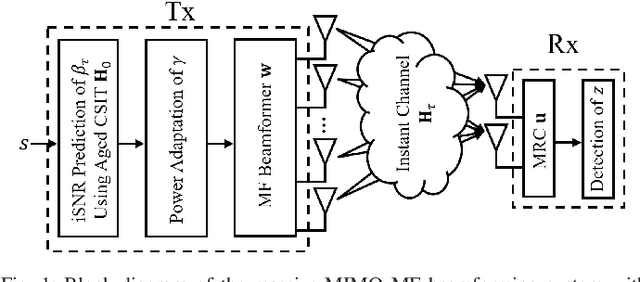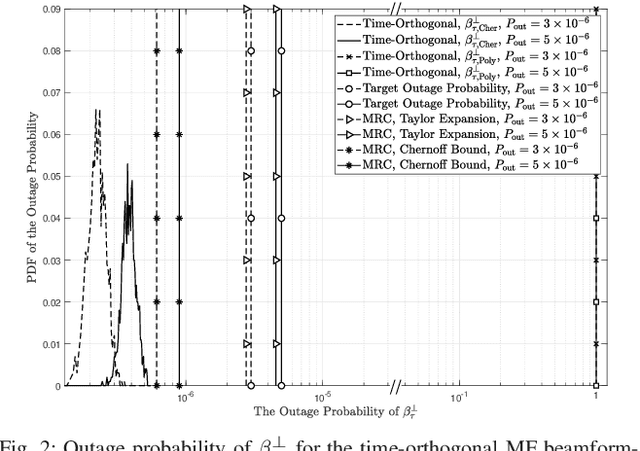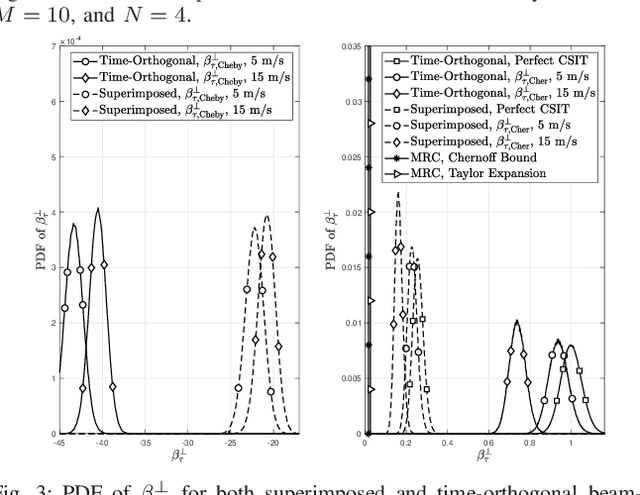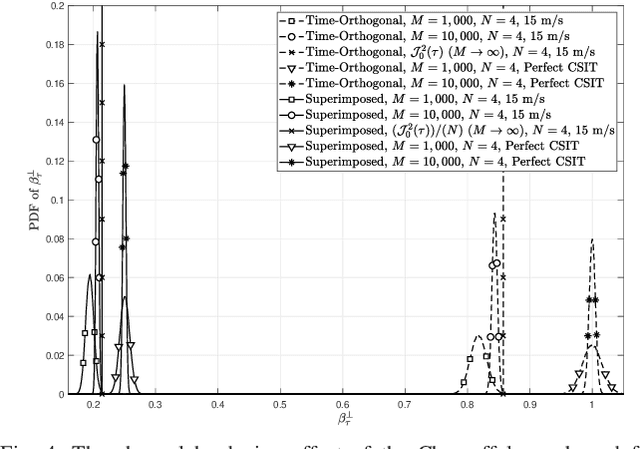Massive-MIMO MF Beamforming with or without Grouped STBC for Ultra-Reliable Single-Shot Transmission Using Aged CSIT
Paper and Code
Oct 06, 2021



The technology of using massive transmit-antennas to enable ultra-reliable single-shot transmission (URSST) is challenged by the transmitter-side channel knowledge (i.e., CSIT) imperfection. When the imperfectness mainly comes from the channel time-variation, the outage probability of the matched filter (MF) transmitter beamforming is investigated based on the first-order Markov model of the aged CSIT. With a fixed transmit-power, the transmitter-side uncertainty of the instantaneous signal-to-noise ratio (iSNR) is mathematically characterized. In order to guarantee the outage probability for every single shot, a transmit-power adaptation approach is proposed to satisfy a pessimistic iSNR requirement, which is predicted using the Chernoff lower bound of the beamforming gain. Our numerical results demonstrate a remarkable transmit-power efficiency when comparing with power control approaches using other lower bounds. In addition, a combinatorial approach of the MF beamforming and grouped space-time block code (G-STBC) is proposed to further mitigate the detrimental impact of the CSIT uncertainty. It is shown, through both theoretical analysis and computer simulations, that the combinatorial approach can further improve the transmit-power efficiency with a good tradeoff between the outage probability and the latency.
 Add to Chrome
Add to Chrome Add to Firefox
Add to Firefox Add to Edge
Add to Edge